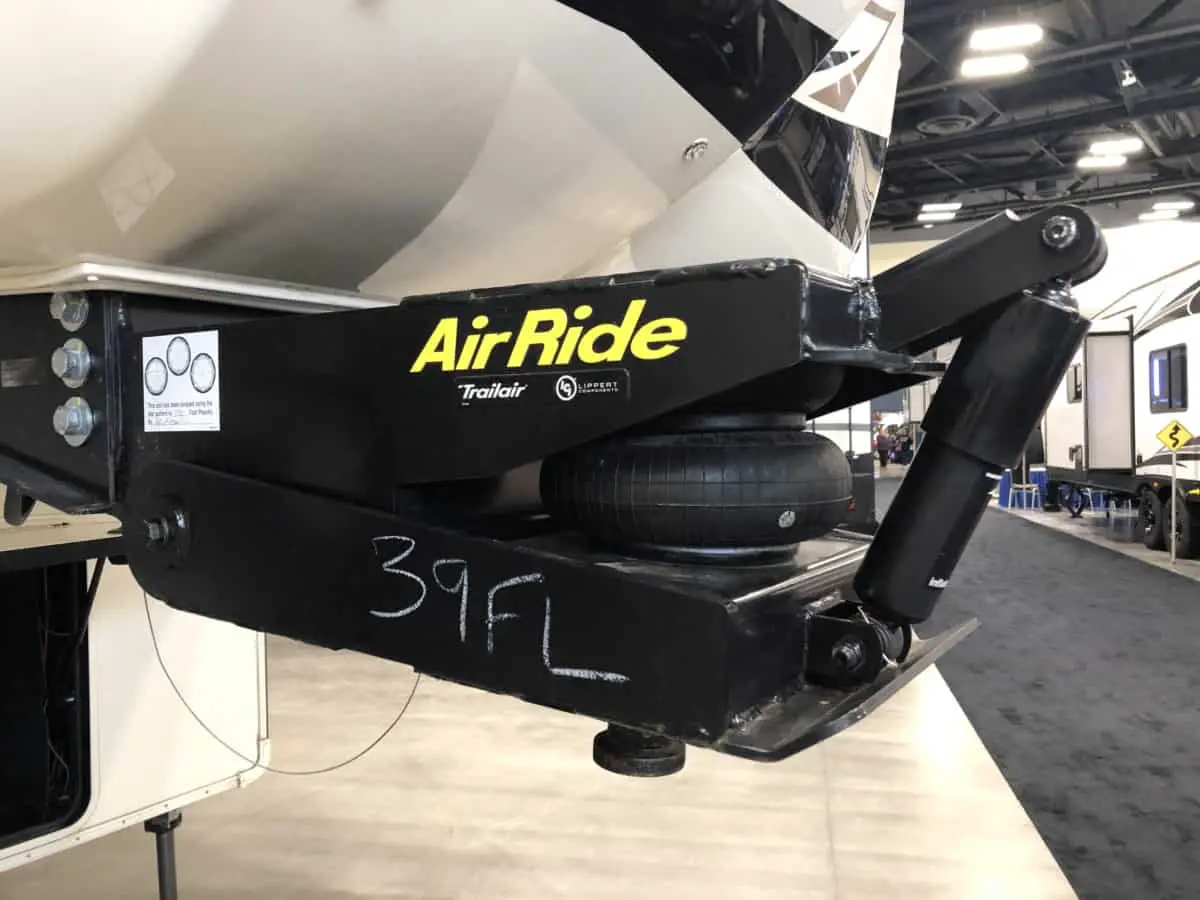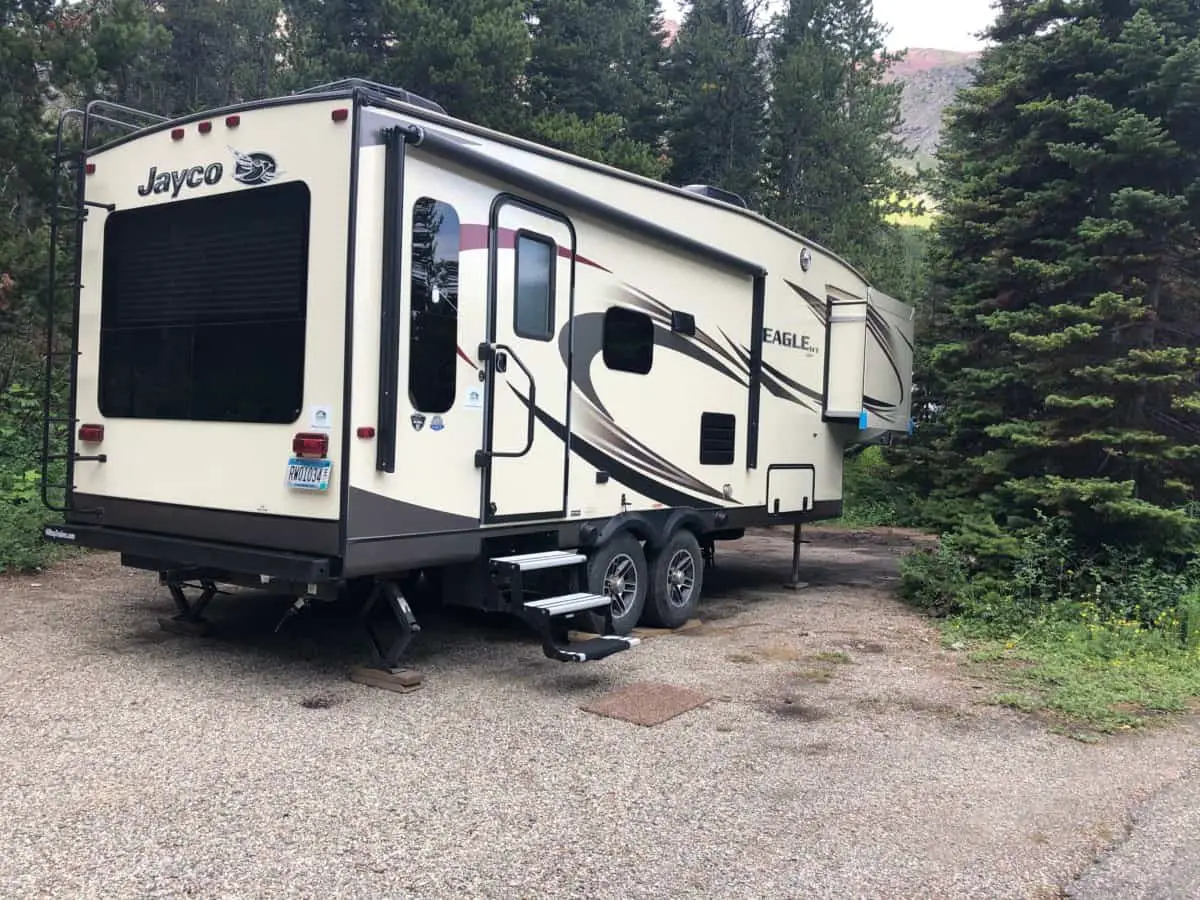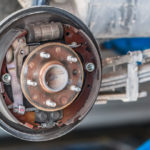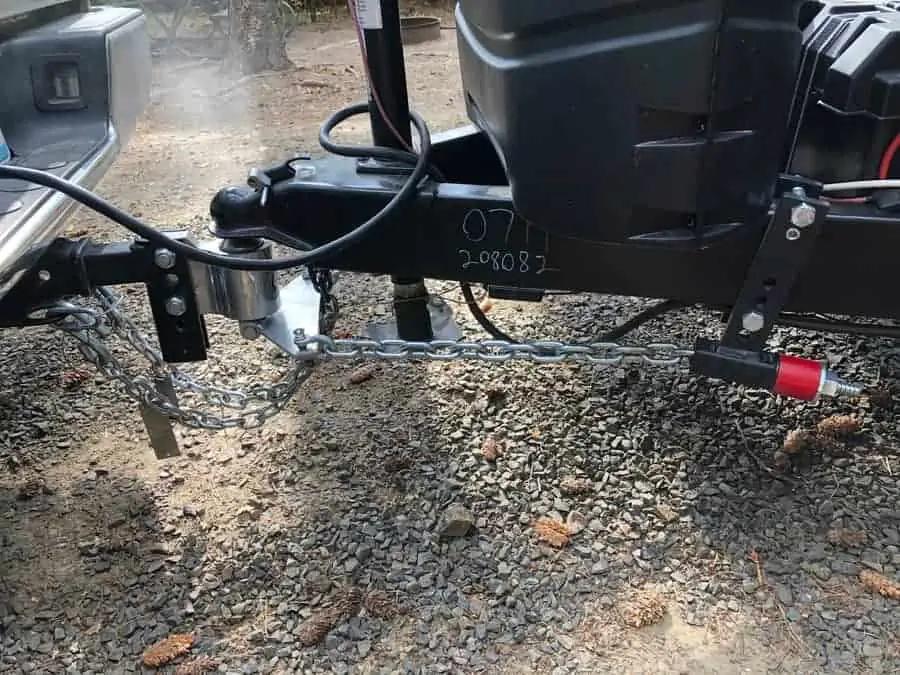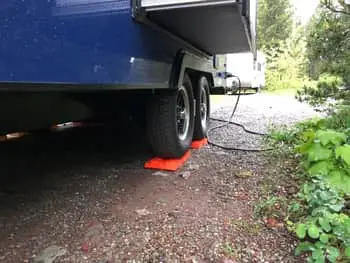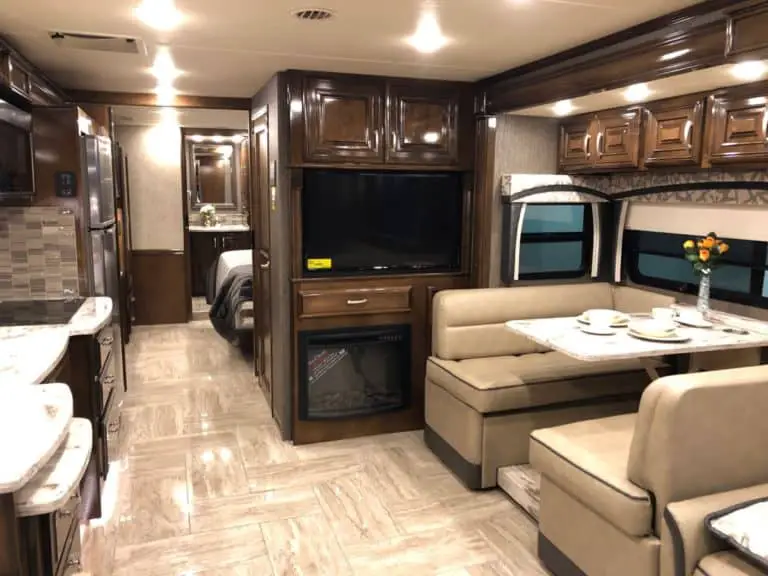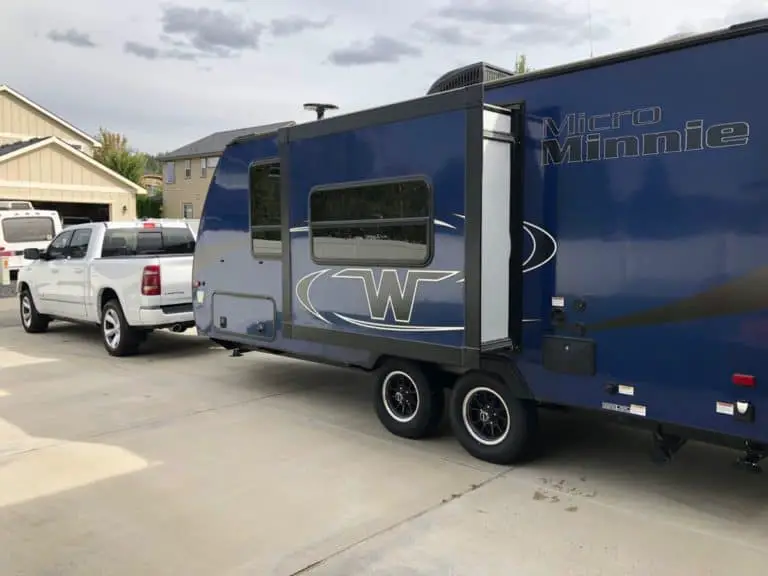What’s the Difference Between 5th Wheel and Gooseneck Trailer Hitches for Campers? A Comprehensive Guide
While a 5th wheel and gooseneck trailer hitch are both capable of hauling large campers, they are vastly different in some ways. So, it’s essential to understand their respective benefits and downsides before you make an expensive purchase that potentially won’t suit your lifestyle.
The difference between a 5th wheel and gooseneck trailer hitches on campers is that 5th-wheel hitches are only compatible with fifth-wheel trailers. Gooseneck hitches are suited to various types of trailers. 5th Wheel hitches are also larger, more silent, and more expensive than gooseneck hitches.
Most RV’s are manufactured with 5th wheel couplers, although installing a gooseneck trailer hitch is also advantageous in certain aspects. So, if you want to know the pros and cons of both types of trailer hitches and which type will better suit your needs, read on!
The Differences Between 5th Wheel And Gooseneck Trailers
Even though the 5th wheel and gooseneck hitches are both located over the truck’s rear axle and attached to a truck bed instead of under the bumper, that’s where their similarities end.
One of the most significant differences between 5th-wheel hitches and their counterparts is the fact that they are mainly used to tow recreational vehicles like RVs, big campers, and travel trailers. At the same time, gooseneck hitches are more universal and can also be used for agricultural purposes.
Although, there are several other differences between 5th-wheel and gooseneck trailers. So, here’s a breakdown of those, including their respective benefits and downsides.
5th Wheel Trailer Hitches: Benefits And Downsides
Before we delve into the benefits and downsides of 5th-wheel trailer hitches, we must understand how they differ from gooseneck varieties.
Fifth-wheel hitches are far more significant and heavier than gooseneck hitches. And they can only be used to tow fifth-wheel trailers with a plate on the truck-bed floor and bulky jaws that securely clamp down on the trailer’s kingpin tongue.
The trailer’s tongue looks similar to a diagonal metal bar with a large pin below it. It is attached by firstly positioning it at the correct height and reversing the truck until the kingpin connects with the 5th wheel hitch, which is then firmly secured with safety chains.
These hitches are available in various options, with sliding mount versions, including weight towing capacity models ranging from 15,000-27,000 pounds.
Fifth-wheel hitches are also convenient when used in conjunction with sliding mounts, as they allow you to alter the position of the truck bed.
And unlike gooseneck hitches, they only need a few tiny, drilled holes if your truck was not manufactured with a 5th wheel hitch.
The Four Main Benefits Of 5th Wheel Trailer Hitches
One of the four main advantages of using 5th-wheel hitches is that they are:
- Far more stable and provides additional control, especially driving with crosswinds that can damage your RV.
- So, there’s much less wear and tear, as they don’t place added stress on your RV’s frame. And using a 5th-wheel trailer hitch means that you will not void your trailer’s warranty, as you would with a gooseneck hitch.
- Most recreational trailers are equipped with a 5th wheel instead of gooseneck couplers, so they are far more accessible and less noisy compared to their counterparts.
- They are also a lot easier to install as you only need to attach a pair of rails to your truck floor instead of cutting a hole to accommodate a gooseneck hitch mechanism.
5th Wheel Trailer Hitch Downsides
One of the most significant drawbacks of 5th wheel hitches is that they take up much space compared with minimally invasive gooseneck hitches.
And because they use at least a quarter of a truck bed’s space over a back axle and move around a lot, there’s little space to transport other items.
While the 5th wheel hitch rails are permanently in place, you can remove most of the bulky hitch components; they weigh 100-300 pounds in total, so you will need some help to remove them.
Although, most folks never remove their 5th wheel hitches as they are so heavy, and simply use waterproof covers to protect them when they are not in use.
However, one of the most significant disadvantages of 5th-wheel hitches is that they are costly. And their installation costs are incredibly expensive, so they are not a budget-friendly option.
And they are less potent than gooseneck hitches as the 5th wheel attaches mainly tow roughly 20 000 pounds. However, some models can withstand pulling up to 27,000 pounds which is 3000 pounds less than a gooseneck trailer hitches.
Gooseneck Trailer Hitches: Benefits And Downsides
Unlike 5th wheel hitches that are bolted to the top of the truck bed, gooseneck varieties are attached beneath a truck bed floor and with a ball that is inserted in a pre-cut hole in a truck bed.
The trailer tongue, an elongated coupler that resembles the vertical segment of pipe hanging below the trailer’s front end, is lowered on top of the gooseneck hitch ball until it slots in and is further secured with safety chains.
5 Benefits Of Using Gooseneck Trailer Hitches
The five main benefits of using gooseneck trailer hitches is as follows:
- Slimline gooseneck trailer hitches use a lot less space than 5th wheel trailers as the protruding ball provides plenty of truck bed space to haul other cargo, and that’s a significant benefit if you frequently use your truck to transport bulky goods.
And, unlike 5th wheel varieties, you don’t have to go through the hassle of removing heavy items if you need more room in the back.
- Gooseneck hitches are also much more affordable than 5th-wheel varieties, and some truck manufacturers offer pre-installed components, which is a good thing to keep in mind when shopping for a new truck.
- They are also an excellent option for farmers, as gooseneck hitches are also suited to livestock trailers and flatbeds. Hence, they are more diverse than 5th wheelers.
- Some hitch producers make adjustable hitches that allow fifth-wheel trailers to be towed by gooseneck hitches.
- And even though gooseneck hitches can tow up to 30,000 pounds, they weigh far less than 5th wheelers.
Gooseneck Trailer Hitch Downsides
Like most things in life, gooseneck hitches have downsides, especially compared to 5th wheelers. So, it’s essential to be aware of them if you want to invest in a suitable hitch for your camper.
Because gooseneck trailers are less stable than 5th-wheel hitches and allow for additional movement, they are very noisy, unlike their silent counterparts.
Another significant downside of gooseneck hitches is that they are far more difficult to install than 5th wheelers, as a hole must be cut in your truck bed, and it should ideally be done by a skilled professional.
However, the most significant downside of opting for a gooseneck hitch, especially for RVs, is that they are not designed for towing campers. And most RVs are equipped with 5th-wheel couplers.
So, suppose you use a gooseneck trailer. In that case, your RV’s warranty will be voided if you need repairs to fix structural issues caused by the gooseneck trailer hitch’s tendency to be less stable.
Conclusion
The main difference between a 5th wheel and a gooseneck trailer hitch for campers is that 5th-wheel hitches are only compatible with fifth-wheel RV trailers. At the same time, gooseneck trailer hitches are more diverse. They can haul various trailers ranging from 5th wheel to livestock trailers.
Be the first to be notified about FREE tips, hints, coupon codes, and email-exclusive information. All for FREE!

